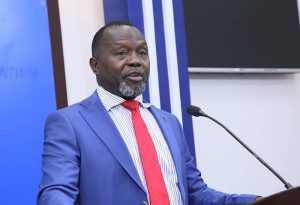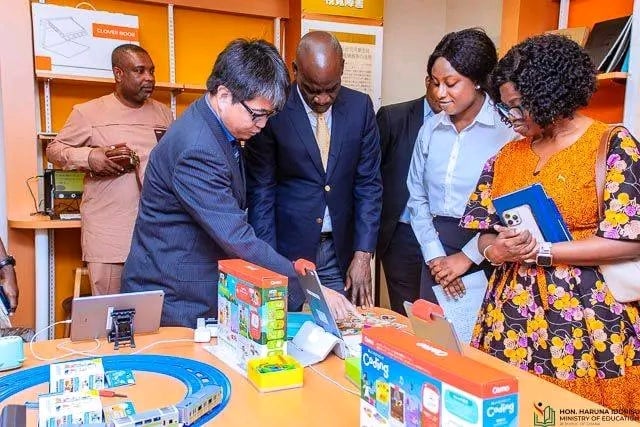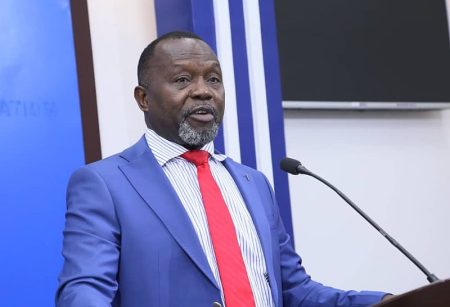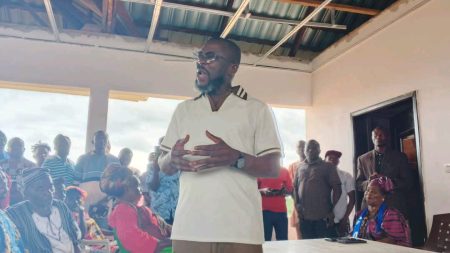Ghana is embarking on a transformative journey to revamp its technical education landscape, drawing inspiration from Japan’s highly successful KOSEN (Colleges of National Technology) model. This ambitious initiative, spearheaded by the Minister for Education, Hon. Haruna Iddrisu, aims to establish National Institutes of Technology (NITs) across the country, mirroring the practical, industry-driven approach of the Japanese system. This move signifies a significant shift in Ghana’s educational policy, prioritizing skills development and aligning education with the demands of a rapidly evolving global economy. The initial phase of this transformation will focus on upgrading the Accra Technical Training Centre (ATTC) and the Dabokpa Technical Institute into flagship NITs, setting the stage for a nationwide network of similar institutions. This strategic adoption of the KOSEN model reflects Ghana’s commitment to equipping its youth with the practical competencies necessary to thrive in the 21st century.
The KOSEN model, renowned for its emphasis on hands-on, practical training, provides a robust framework for Ghana’s aspirations. It emphasizes a curriculum deeply integrated with industry needs, ensuring graduates possess relevant skills and knowledge directly applicable to real-world challenges. This approach fosters a symbiotic relationship between academia and industry, creating a dynamic ecosystem where students are exposed to cutting-edge technologies and practical applications. The adoption of this model signifies a departure from traditional, theoretical-heavy approaches to technical education, placing greater emphasis on experiential learning and fostering innovation. This strategic alignment with industry needs ensures that graduates are well-prepared for the demands of the modern workplace, contributing directly to national development and economic growth.
Ghana’s new direction in technical education also underscores a commitment to inclusivity, ensuring that all learners, regardless of their abilities, have access to quality education. The Minister’s visit to the National Institute of Special Needs Education (NISE) in Japan provided valuable insights into leveraging digital technologies to support students with special needs. This focus on inclusive education aligns with Ghana’s broader educational reforms aimed at creating a level playing field for all learners. By integrating digital tools and adopting best practices from institutions like NISE, Ghana aims to create a more equitable and accessible learning environment for students with disabilities, empowering them to reach their full potential.
The establishment of NITs in Ghana will be a phased process, starting with the transformation of existing technical training centers. This strategic approach allows for a gradual rollout of the KOSEN model, ensuring effective implementation and adaptation to the Ghanaian context. The initial focus on ATTC and Dabokpa Technical Institute will serve as pilot projects, providing valuable lessons and insights for the subsequent expansion of the NIT network. This phased approach allows for continuous evaluation and refinement, ensuring the long-term sustainability and success of the initiative. Furthermore, it allows for the development of specialized curricula tailored to specific regional industrial needs, further strengthening the link between education and industry.
The transformation of these technical institutions into NITs will involve a comprehensive overhaul of their curricula, infrastructure, and teaching methodologies. Curricula will be redesigned to incorporate practical, industry-relevant components, with a strong emphasis on hands-on training and project-based learning. This will require substantial investment in modern equipment, workshops, and laboratories to provide students with state-of-the-art learning environments. Furthermore, faculty development programs will be implemented to equip instructors with the necessary skills and knowledge to effectively deliver the new curricula. This holistic approach ensures that the transformation extends beyond simply renaming institutions, creating genuine centers of excellence in technical education.
The Minister’s visit to Japan marks a significant milestone in Ghana’s pursuit of educational excellence. By adopting the KOSEN model and incorporating lessons learned from NISE, Ghana is laying the foundation for a more robust and relevant technical education system. This strategic initiative aims to equip Ghanaian youth with the skills and knowledge necessary to drive innovation, contribute to economic growth, and compete in the global marketplace. The emphasis on practical training, industry collaboration, and inclusive education reflects a forward-thinking approach that prioritizes the needs of learners and the demands of the 21st-century economy. This bold initiative positions Ghana as a leader in educational reform within the African context and sets a precedent for other nations seeking to revitalize their technical and vocational education systems.














